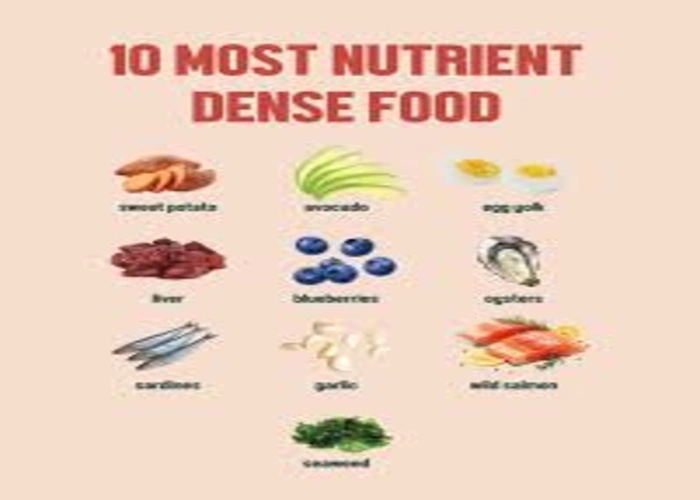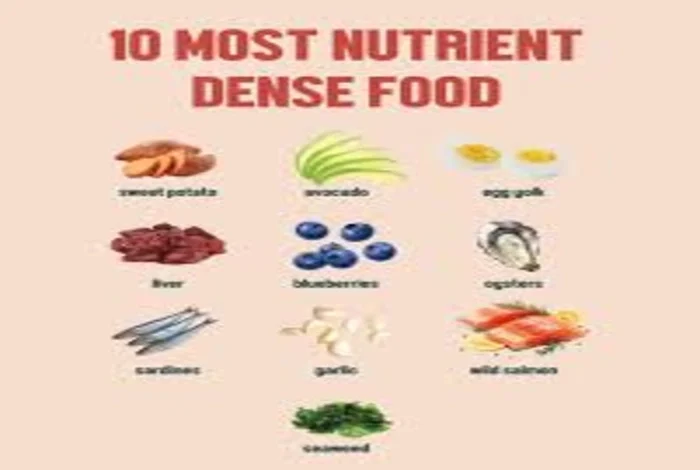
Top 10 Most Nutrient-Dense Foods to Eat Every Day
Eating well isn’t just about counting calories. It’s about packing every bite with the vitamins, minerals, protein, fiber, and healthy fats your body needs. That’s where nutrient-dense foods come in.
Eating well isn’t just about counting calories. It’s about packing every bite with the vitamins, minerals, protein, fiber, and healthy fats your body needs. That’s where nutrient-dense foods come in. These are the everyday superfoods that deliver maximum nutrition for minimal calories, helping you boost energy, protect your heart, support brain health, and maintain a healthy weight. In this guide, we’ll explore the top 10 most nutrient-dense foods to eat every day, from berries and leafy greens to salmon and yogurt, along with simple tips to add them to your routine for lasting health benefits.
Super Nutrient-Dense Food
Nutrient density measures how many vitamins, minerals, and other beneficial nutrients you get in a food compared to its calorie content. Think of it as “nutrition per bite.” For example, spinach, salmon, or blueberries are packed with antioxidants, fiber, and protein without loading you up on excess calories, sugar, or unhealthy fats. On the other hand, foods high in added sugar or refined carbs often give you energy but very few nutrients. By choosing nutrient-dense foods every day, you give your body the building blocks it needs for strong muscles, a healthy heart, and better overall wellness without over-eating.
The Top 10 Most Nutrient-Dense Foods
Below are the everyday superfoods that deliver exceptional vitamins, minerals, and antioxidants for very few calories. Each one is easy to add to your meals and offers unique health benefits.
- Watercress – This leafy green tops the charts for nutrient density, rich in vitamins A, C, and K.
- Sardines – Packed with omega-3, calcium, and protein for heart and brain health.
- Eggs – A complete protein with choline for brain function.
- Berries – Antioxidant-rich, fiber-filled, and naturally sweet.
- Almonds & Seeds – Healthy fats, vitamin E, and magnesium.
- Beans & Lentils – Plant protein, iron, and fiber.
- Sweet Potatoes – Beta-carotene, potassium, and fiber.
- Greek Yogurt – Protein, calcium, and gut-friendly probiotics.
- Seaweed – Iodine, trace minerals, and antioxidants.
- Spinach & Leafy Greens – Folate, iron, and vitamin K.
There is an explanation of the top 10 high-nutrient foods.
1 . Watercress Nutrient Powerhouse
Watercress is often overlooked in favor of spinach or kale, but it’s ranked by the CDC as one of the most nutrient-dense foods on the planet. Just one cup is incredibly low in calories yet loaded with vitamins A, C, and K, plus calcium, potassium, and antioxidants.
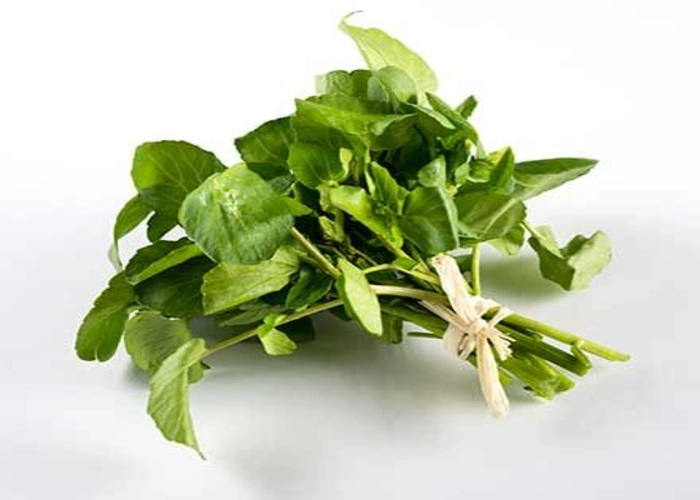
Its peppery flavor comes from plant compounds called glucosinolates, which may help protect against certain chronic diseases. Watercress supports bone health (vitamin K), boosts immunity (vitamin C), and promotes eye health (vitamin A).
2. Sardines – Small Fish, Big Nutrition
Sardines may be tiny, but they’re among the most nutrient-dense foods you can eat. They’re rich in omega-3 fatty acids, which protect heart health, reduce inflammation, and support brain function. They’re also packed with high-quality protein, making them excellent for muscle repair and energy.
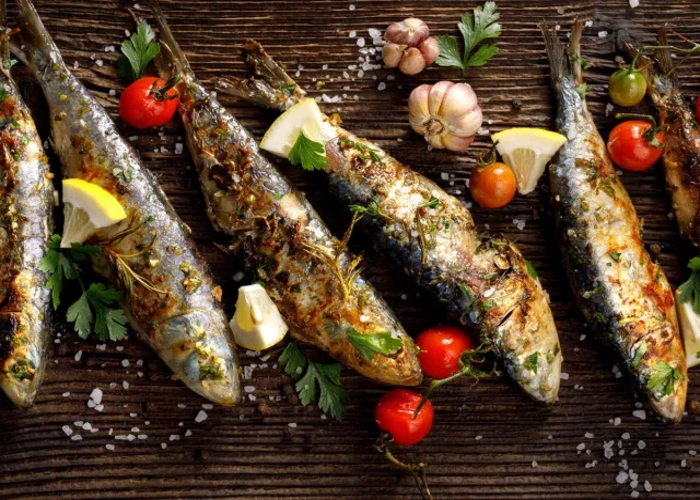
What makes sardines special is their calcium and vitamin D content, both essential for strong bones.
3. Eggs – Nature’s Complete Protein
Eggs are one of the most versatile and nutrient-packed foods you can eat. They contain all nine essential amino acids, making them a complete protein source that supports muscle repair, immune function, and overall health. One large egg delivers around 6 grams of protein for just 70 calories.

They’re also rich in choline, a nutrient crucial for brain development, memory, and nervous system health. The yolk contains antioxidants lutein and zeaxanthin, which protect your eyes from age-related damage.
Whether boiled, scrambled, or poached, eggs are a versatile, affordable, and nutrient-dense choice for any meal of the day.
4. Berries – Antioxidant-Rich Superfoods
Berries, including blueberries, strawberries, raspberries, and blackberries, are naturally sweet, low in calories, and bursting with vitamins, fiber, and antioxidants. They’re especially rich in vitamin C, which supports immune health and collagen production for healthy skin.
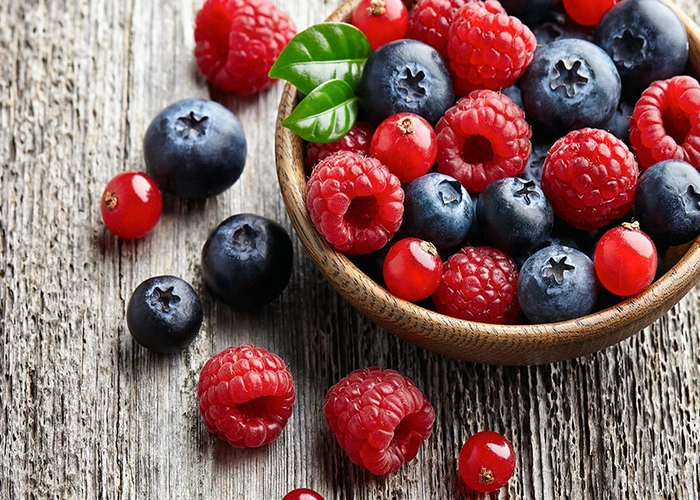
Their deep colors come from anthocyanins, powerful plant compounds that help fight inflammation, improve heart health, and may boost brain function. The high fiber content in berries also supports healthy digestion and keeps you feeling full longer.
5. Almonds & Seeds – Tiny Foods, Big Nutrition
Almonds and seeds like chia, flax, and sunflower seeds may be small, but they’re loaded with essential nutrients. They’re rich in healthy fats (especially heart-friendly monounsaturated fats), vitamin E for skin and cell health, and magnesium to support muscle and nerve function.
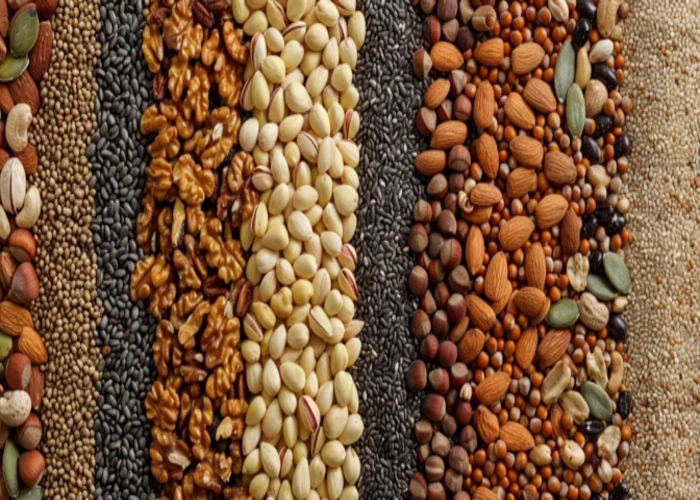
Chia and flaxseeds also provide omega-3 fatty acids, which reduce inflammation and support brain health. The fiber in nuts and seeds aids digestion, helps control blood sugar, and keeps you full between meals. Snack on a handful, sprinkle them over yogurt or salads, or blend them into smoothies for a daily boost of nutrient-dense goodness.
6. Beans & Lentils
Beans and lentils are some of the most nutrient-dense, budget-friendly foods you can eat. They’re rich in plant-based protein, making them an excellent meat alternative for vegetarians and vegans. They also contain plenty of fiber, which supports digestion, helps control blood sugar, and keeps you feeling full for longer.
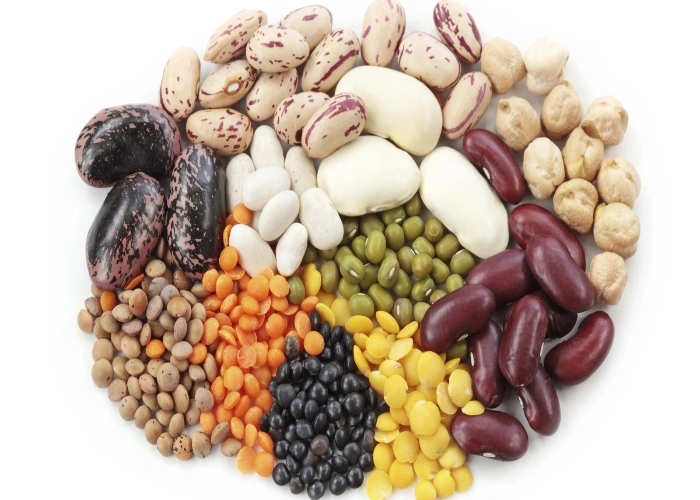
Nutritionally, they’re packed with iron, folate, magnesium, and potassium, all of which are essential for heart health, energy production, and healthy blood cells.
From hearty lentil soups to bean salads and stews, these versatile foods can be easily added to your daily meals for lasting health benefits.
7. Sweet Potatoes
Sweet potatoes are more than just a tasty side dish; they’re loaded with beta-carotene, which your body converts into vitamin A to support eye health, immune function, and skin health. They’re also rich in potassium, which helps balance fluid levels and maintain healthy blood pressure, and fiber, which promotes good digestion and steady energy levels.

Their natural sweetness makes them a healthier alternative to refined carbs, and they’re versatile enough to be roasted, mashed, baked, or turned into fries. Low in fat and high in antioxidants, sweet potatoes are a colorful, nutrient-dense addition to any diet.
8. Greek Yogurt Creamy, Protein-Rich
Greek yogurt is a thick, creamy dairy product that’s strained to remove excess whey, making it higher in protein than regular yogurt. A single serving can provide up to 15–20 grams of protein, which helps build muscle, keeps you full longer, and supports a healthy metabolism.
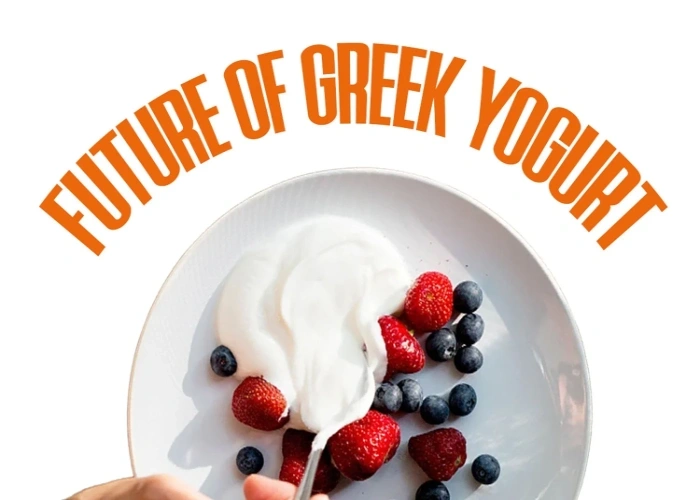
It’s also an excellent source of calcium for strong bones and teeth, and it contains probiotics, beneficial bacteria that promote good digestion and a healthy gut microbiome.
Also Read: Why Gen Z Is Having Less Sex: Exploring Virginity and Modern Sexual Conservatism
Choose plain, unsweetened Greek yogurt to avoid added sugars, and enjoy it with berries, nuts, or a drizzle of honey for a nutrient-packed snack or breakfast.
9. Seaweed
Seaweed is a nutrient-rich marine vegetable that’s especially high in iodine, a mineral essential for healthy thyroid function and metabolism. It also contains vitamin K, calcium, iron, and unique antioxidants like fucoxanthin, which may help reduce inflammation and support heart health.
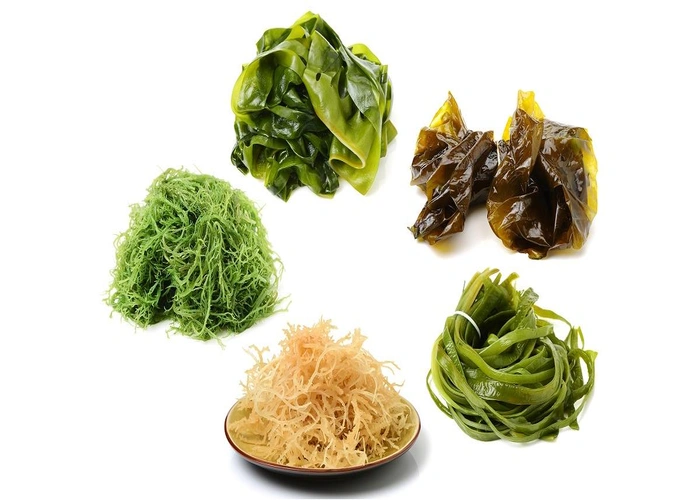
Different types, such as nori, kelp, and wakame, offer slightly different nutrient profiles, but all are low in calories while being dense in minerals rarely found in land vegetables.
You can enjoy seaweed as sushi wraps, salad toppings, snacks, or even blended into soups. It’s a simple way to add variety and trace minerals to your diet.
10. Spinach & Leafy Greens
Spinach, kale, collard greens, and similar leafy vegetables are packed with vitamins A, C, and K, as well as folate, iron, magnesium, and calcium. These nutrients support strong bones, healthy blood, and a well-functioning immune system.
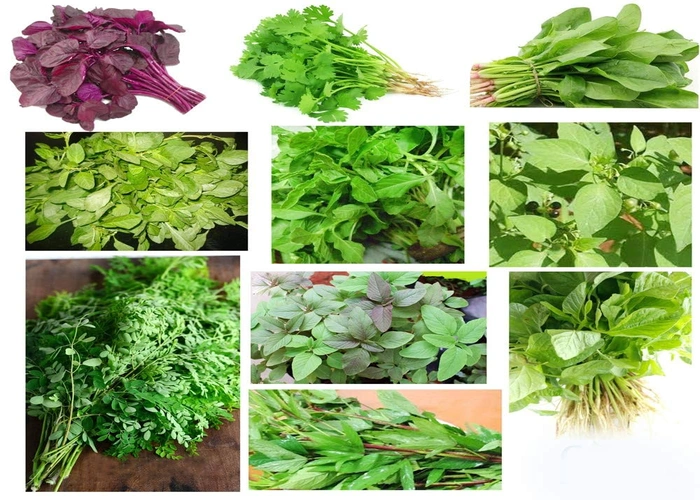
Leafy greens are also rich in antioxidants like lutein and beta-carotene, which protect your eyes and skin from damage. Their high fiber content promotes healthy digestion and helps maintain steady blood sugar levels.
They’re incredibly versatile. Add them to salads, stir-fries, omelets, smoothies, or soups for an easy nutrient boost in almost any meal.
Prep & Pantry Tips
Keeping nutrient-dense foods on hand makes it easier to eat healthy every day. Here’s how to make it simple:
- Stock Smart – Keep pantry staples like beans, lentils, chia seeds, nuts, and canned sardines ready for quick meals.
- Prep Ahead – Wash and chop leafy greens, roast a batch of sweet potatoes, or cook a pot of lentils to save time during the week.
- Freeze for Freshness – Store berries, spinach, and seaweed in the freezer to keep nutrients locked in.
- Mix & Match – Combine different nutrient-dense foods for variety and balance in each meal.
Conclusion
Eating nutrient-dense foods every day is one of the simplest ways to boost your energy, protect your health, and feel your best. From watercress and berries to sardines and sweet potatoes, each food brings unique vitamins, minerals, and antioxidants your body needs.
The key is variety, mixing these superfoods into your meals in ways you enjoy. Whether you’re blending leafy greens into a smoothie, snacking on almonds, or adding seaweed to soups, every small choice adds up to big health benefits.
FAQs
Nutrient-dense foods provide a high amount of vitamins, minerals, and other beneficial compounds for relatively few calories, making them excellent for overall health.
While these foods are incredibly nutritious, your body benefits from variety. It’s best to combine them with other healthy foods for a balanced diet.
Yes! Frozen produce is often picked and frozen at peak ripeness, which locks in nutrients just as well, sometimes better than fresh.
Aim to include several of these foods in your daily meals, rotating them to keep things interesting and balanced.
Not necessarily. Many, like beans, lentils, sweet potatoes, and frozen greens, are affordable and widely available year-round.

